Streamlining Operations and Enhancing Efficiency
Introduction
Japalouppe Stud Farm, sprawling across ten acres, is a multifaceted agricultural enterprise with diverse revenue streams. Specialising in horse riding training, horse riding camps, horse feed trading, a petting zoo, cottage stays, horse accessories trading, animal husbandry, and a horse hostel and recovery clinic, Japalouppe has established itself as a prominent player in the equestrian and agritourism sectors. Additionally, the farm supports its primary activities with essential non-revenue functions including accounting, payroll, compliance, catering, maintenance, construction, inventory management, human resources, marketing, and hospitality. To optimise these varied operations and enhance overall efficiency, Japalouppe engaged Druid Systems to conduct a comprehensive process and systems study.
Challenges
Japalouppe Stud Farm faced several operational challenges that impeded its growth and efficiency:
- Complex Revenue Streams: Managing multiple revenue streams required intricate coordination and resource allocation, leading to operational inefficiencies.
- Overlapping Responsibilities: Human resources were handling multiple processes and functions simultaneously, causing unclear accountability and uneven distribution of tasks.
- Inventory Control Issues: Inadequate inventory management systems resulted in wastage and inconsistent supply of essential materials.
- Process Inefficiencies: Both unique and shared processes across different revenue streams lacked optimisation, leading to reduced operational effectiveness.
- Cost Management: Inefficient processes and inventory control led to increased operational costs, affecting the farm’s profitability.
- Workforce Motivation: Blurred role definitions and overlapping responsibilities contributed to a demotivated workforce, impacting productivity and service quality.
Need Any Help?
Druid Systems’ Approach
Druid Systems adopted a strategic and structured approach to address Japalouppe’s multifaceted challenges, focusing on process optimisation, role clarity, inventory control, and workforce motivation.
- Comprehensive Process Audit
- Stakeholder Engagement: Conducted detailed interviews with the farm’s director, managers, and frontline staff to gain insights into existing workflows and identify pain points.
- Workflow Mapping: Documented all revenue-generating and non-revenue functions to understand process interdependencies and inefficiencies.
- System Evaluation: Assessed the current systems and tools used for managing various operations, identifying gaps that hindered optimal performance.
- Revenue Stream Analysis and Optimisation
- Process Standardisation: Standardised processes across different revenue streams to ensure consistency in quality and operational practices.
- Resource Allocation: Implemented efficient resource allocation strategies to optimise the use of manpower, equipment, and facilities across all revenue activities.
- Performance Metrics: Introduced key performance indicators (KPIs) to monitor and evaluate the performance of each revenue stream, enabling data-driven decision-making.
- Non-Revenue Function Optimisation
- Inventory Management Systems: Introduced advanced inventory control systems to manage supplies for horse feed trading, horse accessories, and maintenance activities, reducing wastage and ensuring consistent availability of resources.
- Maintenance Protocols: Developed comprehensive maintenance protocols for horses, animals in the petting zoo, and capital assets, ensuring high standards of care and operational reliability.
- Automated Payroll and Compliance: Streamlined accounting, payroll, and compliance processes through automation, minimising errors and saving valuable administrative time.
- Role Clarity and Workforce Management
- Role Definition: Clearly defined roles and responsibilities within the human resources department and across all functions to eliminate overlaps and ensure accountability.
- Training and Development: Provided targeted training programmes to upskill managers and staff, enhancing their ability to handle specialised tasks effectively.
- Performance Incentives: Introduced performance-based incentives to motivate the workforce, improving overall productivity and job satisfaction.
- Cost Control and Efficiency Improvements
- Process Reengineering: Reengineered inefficient processes to streamline operations, reduce costs, and enhance service delivery.
- Cost-Benefit Analysis: Conducted thorough cost-benefit analyses for various operational changes, ensuring that implemented solutions were both effective and economically viable.
- Sustainable Practices: Promoted sustainable operational practices to reduce long-term costs and minimise environmental impact.
Conclusion
The collaboration between Japalouppe Stud Farm and Druid Systems underscores the transformative impact of strategic process optimisation and operational enhancement. By addressing complex revenue streams, clarifying roles, improving inventory control, and motivating the workforce, Druid Systems enabled Japalouppe to achieve greater efficiency and cost savings. This successful partnership not only streamlined Japalouppe’s operations but also positioned the farm for sustainable growth and continued excellence in the equestrian and agritourism sectors.
Impact
Druid Systems’ intervention led to significant improvements in Japalouppe Stud Farm’s operations:
- Increased Efficiency: Streamlined workflows and optimised resource allocation boosted operational efficiency across all revenue streams.
- Clarified Roles and Responsibilities: Clearly defined roles eliminated overlaps, enhanced accountability, and improved workforce motivation.
- Enhanced Inventory Control: Advanced inventory management systems reduced wastage and ensured the consistent supply of essential materials, leading to cost savings.
- Cost Savings: Reengineered processes and efficient cost management strategies resulted in substantial cost reductions, enhancing the farm’s profitability.
- Motivated Workforce: Defined roles and performance incentives fostered a more motivated and productive workforce, elevating service quality and operational effectiveness.
- Sustainable Growth: Optimised processes and cost control measures positioned Japalouppe for sustainable growth, enabling the farm to expand its offerings and enhance its market presence.


